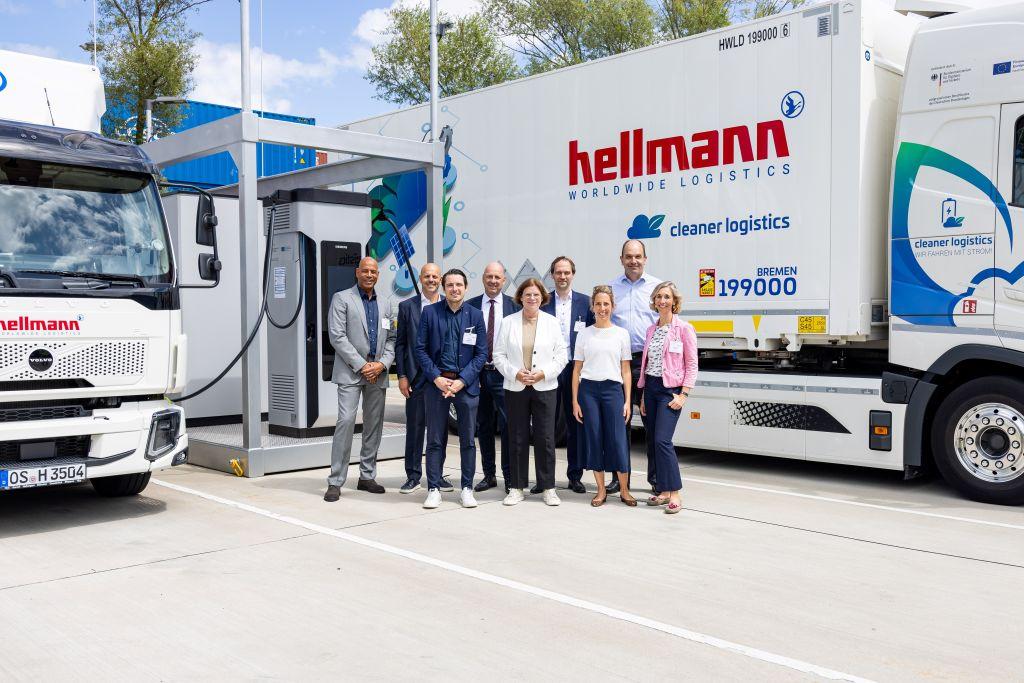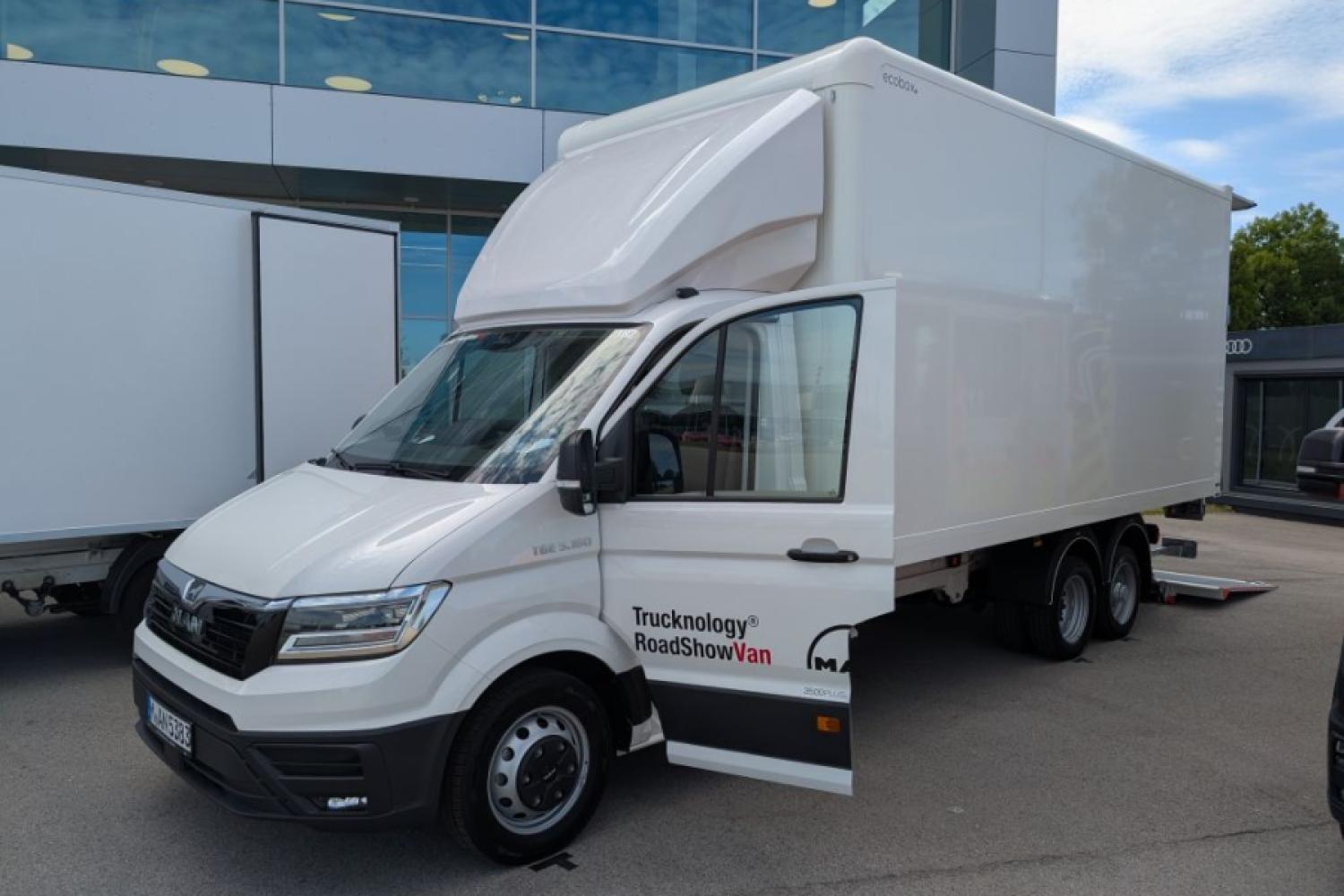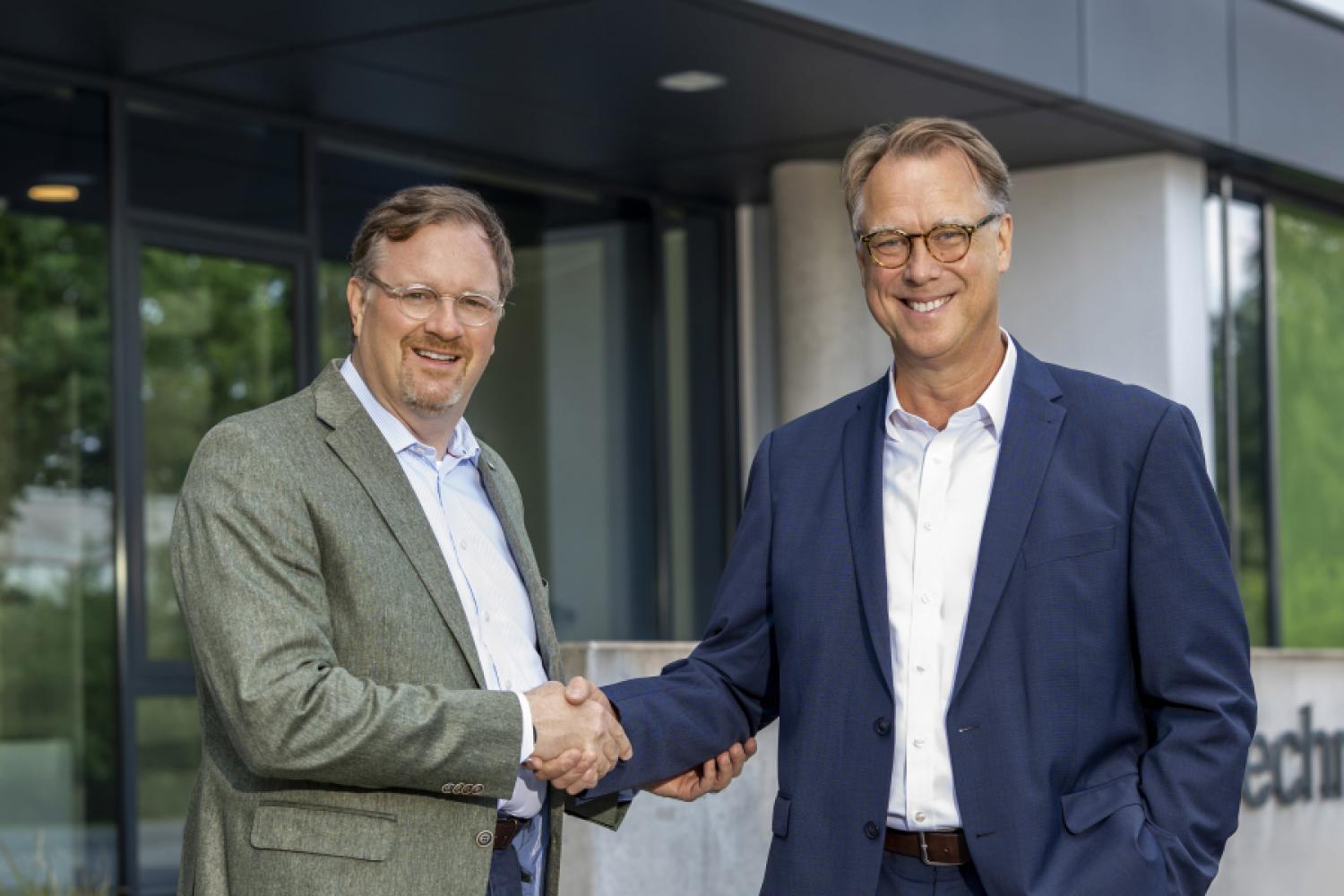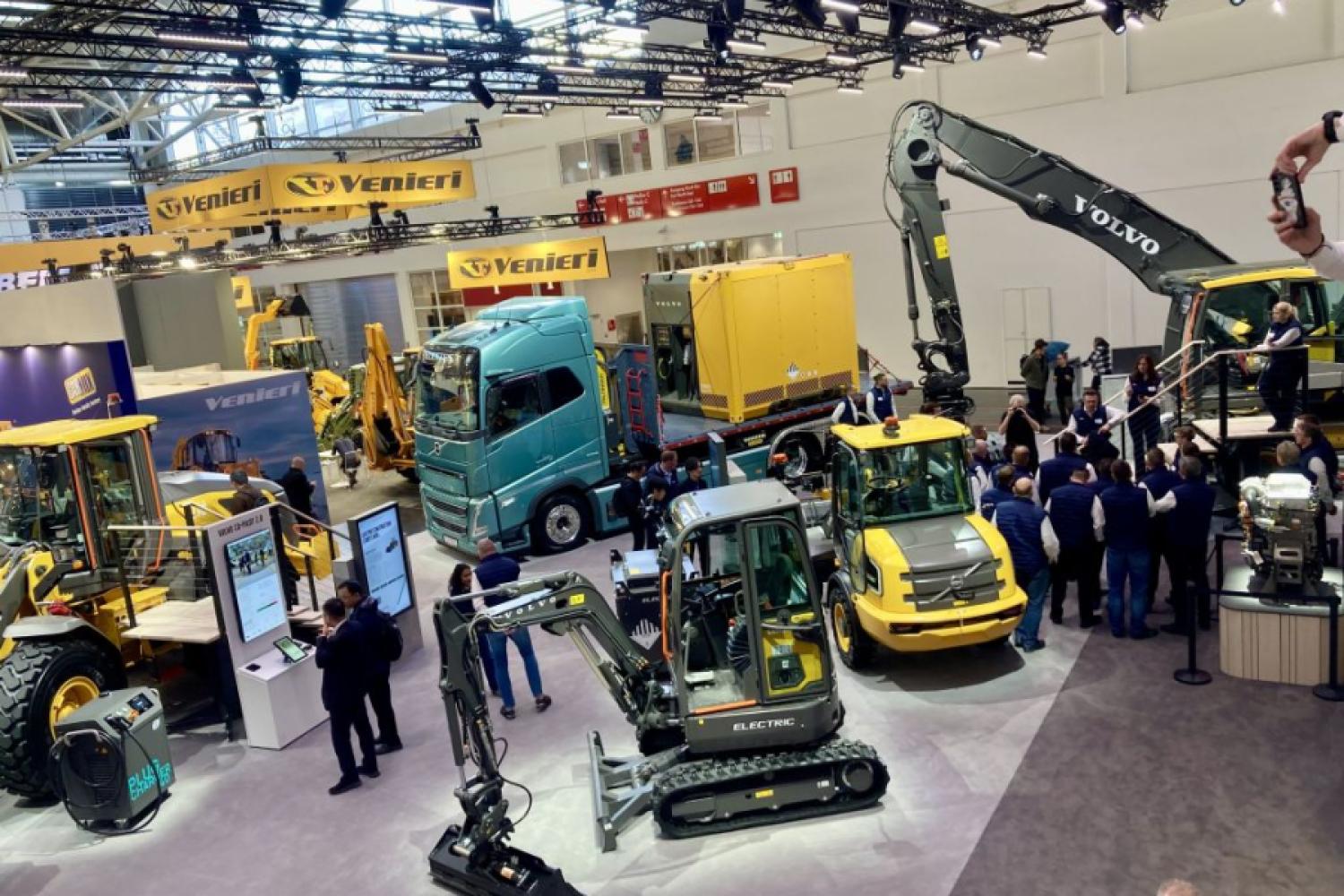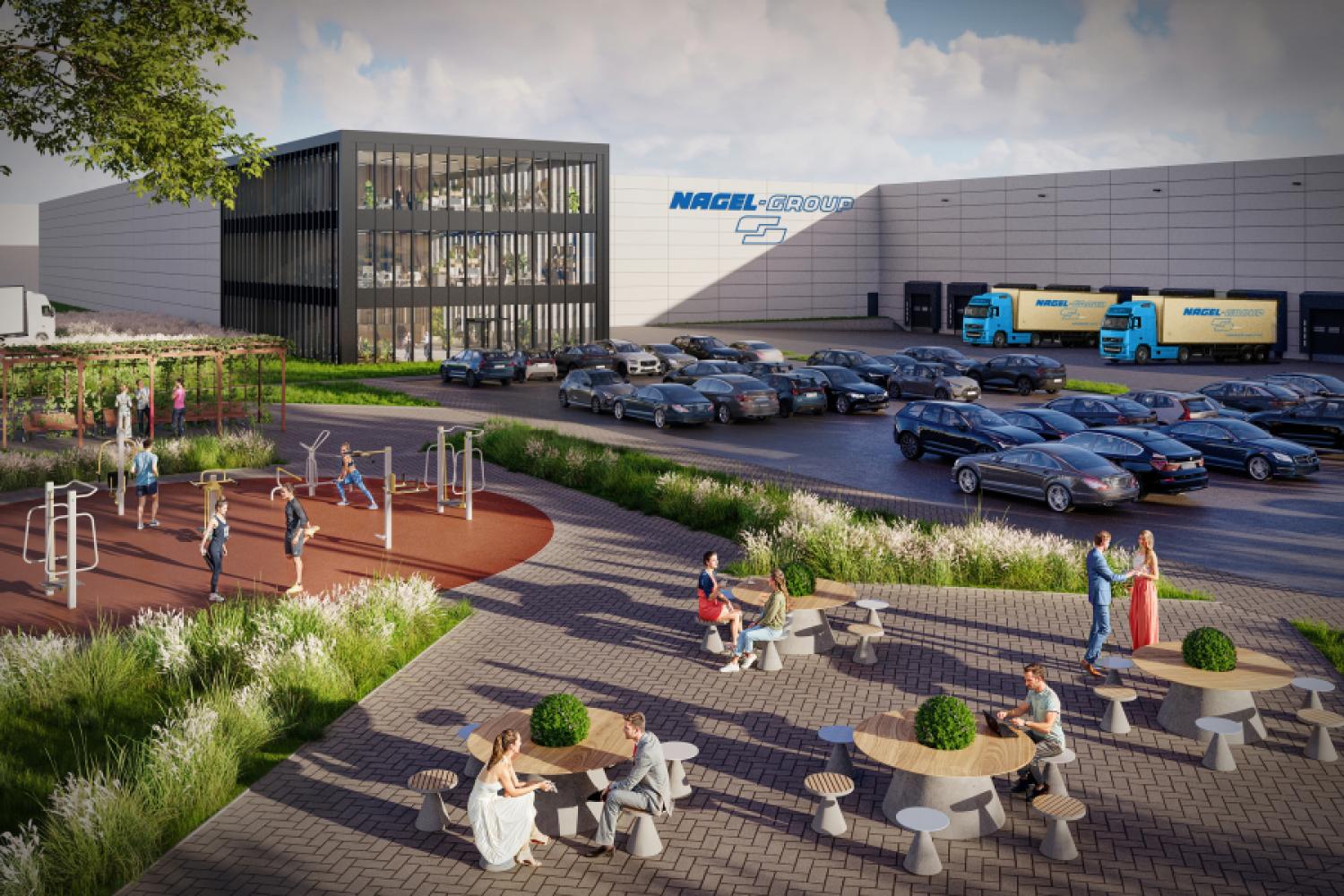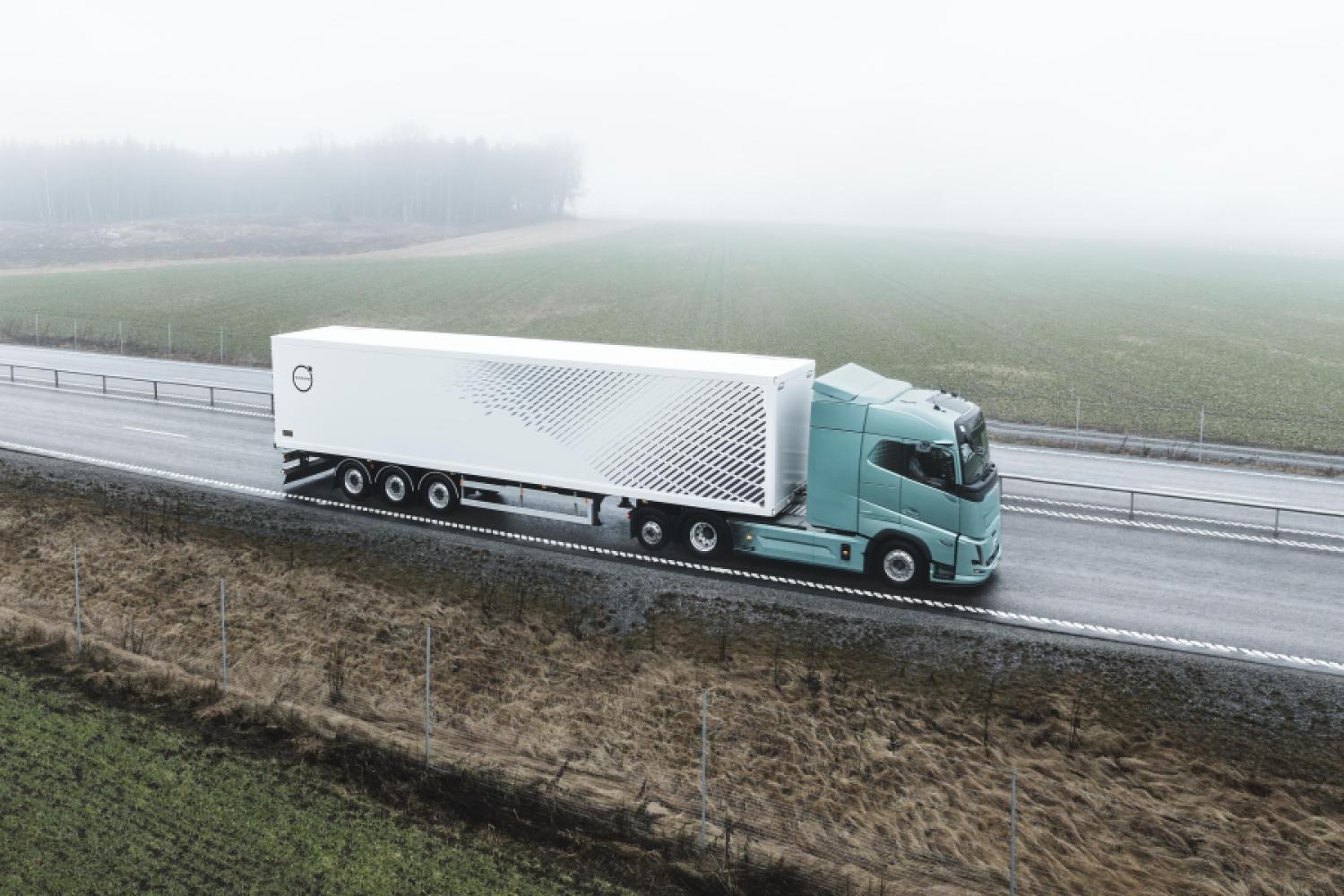How the decarbonization of heavy-duty transport can succeed and the challenges the industry simultaneously faces were discussed by representatives of Hellmann Worldwide Logistics during a visit to the Bremen freight center (GVZ) with senior representatives from politics and economic development. Heavy-duty transport is a significant contributor to CO2 emissions, and there is no doubt that the logistics industry must work together to make the supply chains of tomorrow "greener," the logistics company outlined. The new Federal Minister for Transport, Patrick Schnieder, had sent his head of the Climate-Friendly Commercial Vehicles and Infrastructure department, Hendrik Haßheider, to deliver a greeting. Bremen's Senator for Economic Affairs, Kristina Vogt, was also on-site to gain an insight into the international logistics hub in Bremen.
Best Practice from Energy Generation, Storage, and Charging Infrastructure
The focus was on a best-practice example at Hellmann, demonstrating the triad of self-produced solar
power, modern storage and charging infrastructure, and electrically operated trucks. Since 2024, the logistics company has been deploying its own nationwide E-truck fleet, funded by the federal government, and demonstrates at the Bremen site how the ideal of e-mobility in heavy-duty transport of the future can work in practice. It is not only the question of range and infrastructure that is crucial but also a forward-looking site planning with a powerful photovoltaic system and truck-compatible storage and charging infrastructure, the logistics company advocated. For a year now, two large electrically operated 40-ton trucks have been successfully used in shuttle transport with Osnabrück.
Differentiated Charging Concept in Two-Shift Operation
Based on a differentiated charging concept, the trucks cover between 550 and 700 kilometers daily in two-shift operations. With its own truck-compatible 300 kW charging infrastructure and buffer storage, Hellmann thus drives the medium haul, considered
hard to decarbonize, between the two large Hellmann locations Osnabrück and Bremen CO2-neutrally.
The development of the E-truck fleet and the charging infrastructure is supported with a total of EUR 1.9 million by the Federal Ministry of Transport under the directive on the promotion of light and heavy commercial vehicles with alternative, climate-friendly drives and associated refueling and charging infrastructure (KsNI). The funding of this measure is also provided within the framework of the German Recovery and Resilience Plan (DARP) via the European Recovery and Resilience Facility (ARF) within the NextGenerationEU program. The funding guideline is coordinated by NOW GmbH, and applications are approved by the Federal Office for Logistics and Mobility.
"The electrification of heavy-duty transport is an important building block to reduce CO2 emissions in road transport. The logistics industry can make a significant contribution to achieving climate goals here. Only with
a strong interplay of infrastructure, funding, and businesses' willingness to innovate can the switch to climate-friendly drives be quickly successful," conveyed Transport Minister Schnieder.
Kristina Vogt, Senator for Economic Affairs, Ports, and Transformation of the Free Hanseatic City of Bremen, added that decarbonization is a central component for Bremen's climate goals. Therefore, analyses have been financed to position the site to be climate-neutral and to practically advance the transportation transition in logistics. The expansion of Hellmann's E-truck fleet and the necessary charging infrastructure shows concretely how electric solutions can be successfully implemented.
"We are convinced that e-mobility will be a central pillar of decarbonization in heavy-duty transport in the medium and long term. Our goal is to gather more operational experience in the field of e-mobility to quickly convert our entire fleet to be CO2-neutral based on this," added Stefan Borggreve, COO of Hellmann
